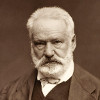“ The broadest mirth unfeeling folly wears, Less pleasing far than virtue's very tears: Good, from each object, from each place acquired For ever exercised, yet never tired; Never elated, while one man's oppressed; Never dejected while another's blessed; And where no wants, no wishes can remain, Since but to wish more virtue, is to gain. ”
Alexander Pope, An Essay on Man (1734). copy citation
| Author | Alexander Pope |
|---|---|
| Source | An Essay on Man |
| Topic | virtue pleasing |
| Date | 1734 |
| Language | English |
| Reference | |
| Note | |
| Weblink | http://www.gutenberg.org/files/2428/2428-h/2428-h.htm |
Context
“Where only merit constant pay receives, Is blest in what it takes, and what it gives; The joy unequalled, if its end it gain, And if it lose, attended with no pain; Without satiety, though e'er so blessed, And but more relished as the more distressed: The broadest mirth unfeeling folly wears, Less pleasing far than virtue's very tears: Good, from each object, from each place acquired For ever exercised, yet never tired; Never elated, while one man's oppressed; Never dejected while another's blessed; And where no wants, no wishes can remain, Since but to wish more virtue, is to gain. See the sole bliss Heaven could on all bestow! Which who but feels can taste, but thinks can know: Yet poor with fortune, and with learning blind, The bad must miss; the good, untaught, will find; Slave to no sect, who takes no private road, But looks through Nature up to Nature's God;”
source



